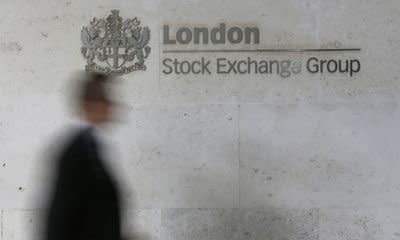LSE turmoil of 2017 fails to dent Rolet legacy

It's fair to say that 2017 was a tumultuous year for the London Stock Exchange (Other OTC: LDNXF - news) .
In March, just hours Britain formally triggered Article 50 of the Lisbon Treaty to begin divorce proceedings with the EU, the LSE's planned £24bn merger with Deutsche Borse was scuppered by the European Commission - killing the pair's dream of creating a European champion in exchanges to take on US and Asian rivals.
The LSE was then convulsed by a dramatic falling-out between its chairman, the City veteran Donald Brydon, and its highly-regarded chief executive, the Frenchman Xavier Rolet. It resulted in a feisty campaign by the activist investor, Sir Chris Hohn, to ditch the former and retain the latter.
It all came to a head when, at the end of November, the Bank of England Governor, Mark Carney, told Mr Rolet it was time to move on . Mr Rolet's eight-and-a-half year reign, during which the LSE's share price more than quadrupled in value, was over.
Today's results from the LSE, though, show what a fine business Mr Rolet bequeathed to his successor. A business that, in spite of all of the turmoil going on in the exchange's boardroom, is in robust health.
Total (LSE: 524773.L - news) sales rose by 18%, to £1.95bn, while operating profits on an underlying basis rose by the same amount to £812m.
The dividend has been hoisted by 19% to 51.6p-a-share.
What is particularly striking about these results is that they came despite the fact that - as disappointing results from the trading arms of all the big Wall Street banks attest - last year was a very dull trading environment.
However, contrary to what most people assume goes on at the LSE, the company these days makes money from many more activities than its traditional capital markets businesses - providing trading platforms for equities and bonds.
That accounted for just a fifth of the LSE's sales in 2017. Of greater importance these days is providing clearing services, often referred to as the 'plumbing' of the market, the business of ensuring that, when a security is sold, the buyer receives the security and the seller receives their money. That made up 36% of sales last year.
The biggest single segment of business, meanwhile, is what the LSE calls 'information services' - providing pricing data in real time and running indices and benchmarks. This not only includes its best known brand, the FTSE (the then owner of the Financial Times sold its stake in FTSE International to the LSE in 2011), but also indices under the Russell brand, a business bought during Mr Rolet's time at the helm.
That accounted for 38% of sales in 2017. Lastly, the LSE also provides technology to market participants, mainly in the form of trading software and server hosting.
All of these activities grew their sales last year, but the fastest area of growth was at FTSE Russell, the information services part of the business. Other striking elements in the results included a 31% rise in the volume of swaps (a widely used financial derivative product) cleared at the London Clearing House to $874trn.
More than a quarter of these trades were denominated in euros - despite threats from Brussels that such business should be relocated to the Eurozone following Brexit. Market participants are voting with their feet in favour of London.
If there was a disappointment, it is because there was no news today on Mr Rolet's successor, the company restricting its comments to an observation that it was making "good progress" sifting through some "high quality candidates".
Whoever ultimately gets that job - and some of the investment banking world's biggest names have been linked with it - will, while inheriting a good business, still have some major issues with which to grapple.
The first is seeing off any threat created by Brexit to the LSE's business. There are countries in the EU which still covet the LSE's position in clearing and some in Brussels still blame the LSE for contributing to the Eurozone sovereign debt crisis of 2011-12.
The second is what to do about partnerships. As well as Deutsche Borse, with which the LSE has sought to team up on three separate occasions, Mr Rolet also tried to acquire the Toronto Stock Exchange.
That deal was killed by Canadian protectionism.
However, in the world of global exchanges, big is beautiful. The new LSE chief will still find themselves under pressure to merge with or acquire global rivals.

 Yahoo News
Yahoo News 